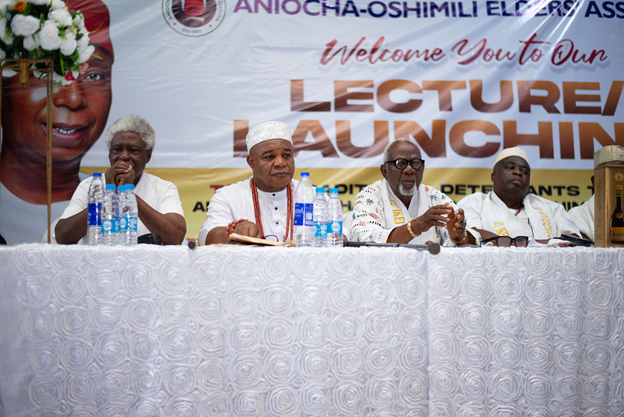BY JUDITH OBIANUA
THE member representing Delta North Senatorial District at the Senate, , Senator Ned Nwoko, has emphasized the deep cultural heritage of the Anioma people, noting that for centuries they have relied on their strong traditional systems to sustain social order.
He made this known at the Anioma–Oshimili Elders Association (IzuIkei) luncheon and lecture with the theme: “Traditional Deterrents to Deviant Anti-Social Behavior in Aniocha–Oshimili: Bridging the Gap Between Governance and Culture.”
Nwoko, who was represented by Ogbueshi Godfrey Odogwu, stated that indigenous institutions such as Diokpa, Omu, Umu-ada and the Council of Elders have long served as moral and communal guides.
According to him, these institutions not only preserve cultural traditions but also act as deterrents to behaviors that threaten peace, harmony, and collective well-being. He lamented, however, that in modern times, the influence of such traditional deterrents has significantly eroded.
Highlighting the uniqueness of the Anioma people, Sen. Nwoko recalled that the quest for Anioma State dates back seventy-one years ago. He explained that Sir Dennis Osadebay, first proposed the creation of Anioma Province to the colonial office in London, seeking its separation from Warri and Benin Provinces.
He noted that the bill for Anioma State creation has passed through its first and second readings at the Senate and now awaits the assent of President Bola Ahmed Tinubu.
Also speaking, the Chairman of the occasion, Professor Kemi Emina, outlined the objectives of the Anioma–Oshimili Elders Association. He explained that the body was established to promote Anioma identity and culture, provide guidance and leadership on issues affecting Aniocha and Oshimili, foster unity among the people, and preserve their cultural heritage. He further noted that the association aims to conduct research and publish findings on cultural, political, and socio-economic matters concerning the communities.
In his remarks, the president of the association, Sir Clement Okonjo, explained that the association comprises the four local government areas of Aniocha and Oshimili. He stressed that it is duly registered with the Corporate Affairs Commission under the motto: Afue Ekwune Na EgbuIkei, Ekwu Anuna Na EgbuIkoro (“When an elder sees and keeps silent, it diminishes the elders; when elders speak and the young refuse to listen, it diminishes the youth”). He added that membership is designed for elders above sixty years, serving the collective good of the people.
Sir Okonjo further congratulated distinguished Anioma sons and daughters who have excelled in various professions, business ventures, politics, and public service. He encouraged traditional rulers, youths, and entrepreneurs to continue to promote Anioma’s cultural values, for the preservation of the legacy of their forebears.


